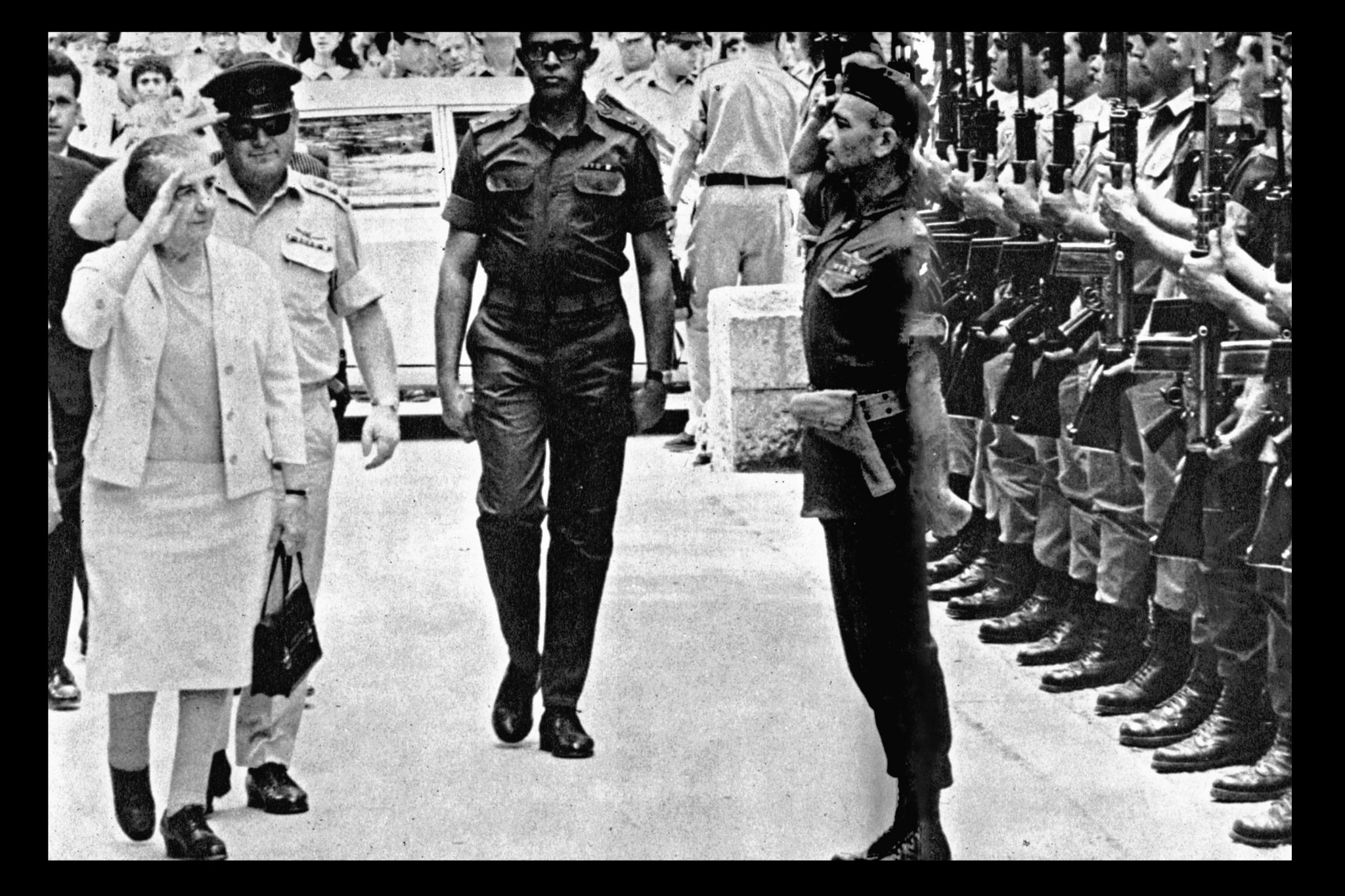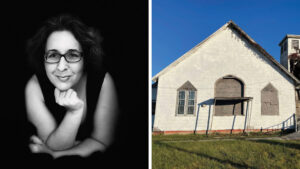History has not been kind to Golda Meir.
Although considered iconic in her time and a hero to Zionists and feminists around the world, the late Israeli prime minister has not fared well with many historians, observers of the Middle East or her fellow Israelis, largely for what’s viewed as her inability to prevent 1973’s Yom Kippur War.
Francine Klagsbrun is out to change that perception. The author of more than a dozen books, Klagsbrun will speak on June 13 at 6 p.m. about her 2017 National Jewish Book Award-winning “Lioness: Golda Meir and the Nation of Israel” (Shocken) at Chizuk Amuno Congregation, 8100 Stevenson Road.

The dinner, program, book signing and dessert reception will be presented by the AMIT Baltimore organization as its “2018 Family-in-Israel Event.”
While The New York Times hailed “Lioness” as a “thorough and absorbing examination” of Meir, the Washington Post praised the 848-page book for being “scrupulously researched” and avoiding the pitfalls of “hagiography or [becoming] a hatchet job.”
This year marks the 120th anniversary of Meir’s birth and the 40th anniversary of her death. Jmore recently spoke with the Manhattan-based Klagsbrun, 87, a longtime contributor to the New York Jewish Week and Lilith magazine, about her book and the life and legacy of the Kiev-born, American-raised Meir.
Jmore: Your book has received a lot of good reviews and accolades. That must be very gratifying after working on it for a decade.
Klagsbrun: Yes, I’m very pleased and gratified. I’m so glad it came out now with the 70th anniversary of Israel, with the current women’s power movement, and of course with the 120th anniversary of Golda’s birth and the 40th anniversary of her death in December. It was a lot of hard work, a lot of going back and forth to Israel. So I’m very happy. It was all beshert [fate].
You obviously admire Golda Meir a great deal and even refer to her by her first name throughout the book. Was it difficult to write objectively about her?
No, I could see her negatives and why people criticized her. She could be very difficult and sarcastic and hold grudges. What was hard for me was that I got to know her two children and I liked them, and they came to trust me. I told them I would be as fair as I could be, so it was hard to think they’d be hurt by any criticism [of Meir]. But I still did it. They died [before the book’s publication], but I think they’d be happy with it.
Why did you decide to write about Golda now?
Well, I’d love to give you a magical, romantic reason for why I wrote it now, but the truth is an editor at Schocken asked me to write it. I’d never written a big biography before, so it was a challenge. Also, I’d always been fascinated by Golda. So when [the editor] asked, I thought it was perfect.
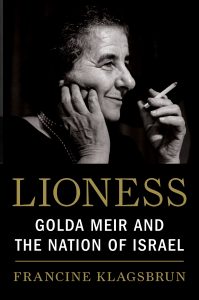
It took a long time because the [Israeli state] archives had been opened while I was writing the book, with thousands of documents, so I just got caught up in it. I wanted to write the definitive Golda Meir book, and I think I really covered everything.
How did her childhood in Kiev and upbringing in the United States shape her as a leader?
Both were very important. The background of living in Czarist Russia at that time was very important. She never actually saw a pogrom, but she always talked of the terror. I think that was always in the back of her mind, that Jews must never again live in fear and weakness.
Coming to the U.S — and Milwaukee in particular — had a big influence on her. Milwaukee was a very socialist, progressive city. Her inclination toward socialism was reinforced by being there. Also, Milwaukee was right on the edge of the frontier at that time. It prepared her for kibbutz life, which she loved.
Why did she leave the comforts of the U.S. for the rigorous life of Mandatory Palestine in 1921?
She loved the U.S., but said she wanted to be part of the Zionist ideal. That was her life and devotion. She wanted to be part of the building of a new land for her people.
Was she the archetypal Zionist?
Yes. She was a very modest, hard-working, devoted person, totally devoted to the cause of Zionism. She gave up her family life in many ways for the cause, even though her children resented it when they were young, She gave up everything for the cause of building a homeland.
Why didn’t she and her longtime estranged husband Morris Meyerson ever get legally divorced?
Some people have said he wouldn’t give her a divorce out of spite. I don’t know if that’s true. I think she liked being a “Mrs.” Remember, divorced women in those days were looked down on.
Also, she never wanted to remarry. She had other men in her life, some of them married themselves, but she didn’t want to remarry. So she grew apart from [Meyerson]. But they stayed connected all those years, because of their children. She fainted when she learned he died.
Much is made of Golda’s love life. Was she promiscuous or just held to a different standard than her male counterparts?
She enjoyed life, You have to consider the atmosphere. They were revolutionaries and socialists. It was an exciting time; they were building a nation from scratch and fighting the British.
All of the [male Zionist leaders] had mistresses, so she saw herself as one of them and wanted to live life to the fullest. She was attracted to cultured and intellectual men, because she didn’t have any of that. She was not very well educated.
What would people be surprised to learn about Golda?
People think she was a sweet old bubbie, but she was exceedingly tough. A lot of people didn’t like working for her. She was demanding and didn’t change her mind easily. She was rigid in many ways.
Also, she was very smart. She could always see right to the heart of a situation or topic. She was a master of it. She made very complicated decisions as prime minister and foreign minister. She had an innate intelligence, and that’s unusual. During the Yom Kippur War, she really kept it all together when [Defense Minister] Moshe Dayan fell apart. She made very tough military decisions. She was very shrewd and worked harder than anybody else, doing jobs no one else wanted.
How did she thrive in such a male-dominated culture?
She saw herself as equal to the men. But she wanted to be part of the larger picture, not just about women’s issues. So she became one of the boys.
Was she an anti-feminist?
Not totally. On the surface, she opposed the movement of the ’70s and called them “crazy women who burn their bras and hate men,” and she didn’t identify as a feminist or a woman leader. She was very critical of the movement. She hated being identified that way. But she was a feminist in today’s terms. She cared about women’s rights.
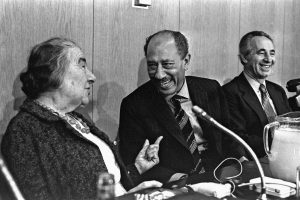
A lot of people, particularly Israelis, place blame for the Yom Kippur War at her feet. Is that fair?
I don’t think she was to blame. She didn’t miss the [pre-war] peace overtures [from Egyptian President Anwar Sadat]. But like any Israeli leader of that time, she wasn’t willing to give back [the lands conquered in 1967’s Six Day War]. She was not a “Greater Israel” person, but she cared deeply about Israel’s security. She was ready to negotiate, but she felt they needed to keep parts of the West Bank and the Suez area.
People feel Israel was unprepared [before the war], but the generals kept reassuring her that Egypt would not attack Israel unless they got certain weapons from the Soviet Union, and that Syria wouldn’t attack unless Egypt attacked. They were wrong. Golda went along with what her generals said, like most leaders would’ve done. But she always blamed herself. She said it was the one time in her life she didn’t trust her intuition.
Do you think the blame is based on sexism?
I think it’s part of it. Was Franklin Roosevelt blamed for not preventing Pearl Harbor? I do think sexism is part of it.
Did she really threaten to use nuclear weapons during the Yom Kippur War if President Nixon didn’t airlift much needed supplies to Israel?
I don’t think it’s true. I interviewed [former Secretary of State] Henry Kissinger and he said Israel did not threaten to use nuclear weapons. Israel, to this day, has never openly said it even has nuclear weapons. So I don’t believe Israel would threaten the U.S. and say it’s going to use the nuclear ability. It would be too dangerous to make that threat.
If alive today, how would Golda feel about the lack of Middle East peace?
She’d be surprised we didn’t have peace yet, especially after Sadat [and the Camp David Accords]. She would be very frustrated and shocked by the strength of the extreme right-wing in Israel today. She’d be shocked by the growth of the settlements. She was willing to give up land for peace. Not that she loved Palestinians or Palestinian nationalism, but she didn’t feel Israelis should move into areas where many Palestinians lived.
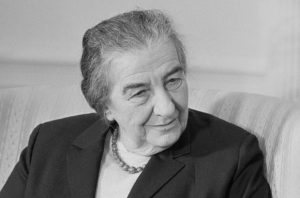
What would she think of Israeli society today?
She’d be complaining. She was considered old-fashioned in her day with her talk of socialism. She’d be shocked by the extreme wealth and extreme poverty there, and by Israel’s embrace of capitalism.
What would she think of President Trump?
I think she would be happy about his pro-Israel stance and the embassy move [from Tel Aviv to Jerusalem]. But I think the anti-Semitic undertones of what we hear from some of his followers, especially with Charlottesville, would concern her.
After spending so much time working on this book, you must feel quite close to Golda.
People think I am Golda because I talk about her so much. They ask me questions like I’m her and can answer for her.
But I’m not Golda. I’m better looking.
For information about AMIT Baltimore’s “2018 Family-in-Israel Event,” call 410-484-2223 or email robbiep@amitchildren.org.

